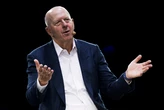In his new book, Hope for Cynics, Jamil Zaki shares a succinct invitation that captures its essence: “People become who you expect them to be.” Zaki, a Stanford professor and director of the university’s Social Neuroscience Lab, has dedicated 15 years to studying empathy, kindness, and connection. His quote piqued my curiosity: How might we use our expectations to shape positive interactions?
“The first is to be aware of our power,” Zaki says. “A lot of people imagine that others are who they are, and all we do is observe who they are. We don’t realize that we are part of their environment, and thus, we change who they are.”
“Cynicism is a story of toxic self-fulfilling prophecies, where we lower our expectations of others and they lower themselves to meet those expectations,” he adds. “But, what we can do if we want to wield our power in a more positive way, is to raise our expectations of other people—to treat them like the folks we hope they are, instead of the people we fear them to be. It turns out that when we do that, people step up to meet our expectations.”
Hope for Cynics is about building—and rebuilding—that sense of trust, as leaders and colleagues, friends and fellow citizens. Here, Zaki shares tools to practice intellectual humility, build communal relationships, and revitalize our faith in each other.
This interview has been edited for length and clarity.
You describe cynicism as “a disease of social health” and express that “there’s no way to change a broken system if it’s a mirror that reflects our broken nature.” Let’s start with your vision for how we can heal them both.
One of the big moves I’ve tried to make in my own cynical mind—in embracing a different and hopefully, healthier perspective—is to separate the systems we’re in and the world we live in from the people around me. There are so many features of modern life that make it easy to feel like all hope is lost—to write people off [and] decide: Wow, look at what a mess we’ve made. We must be at fault. We’re the problem. I think that is alienating at a number of levels. One, it makes it harder to connect with people. We are lonelier as a species than we’ve been in many decades; I think a lack of faith in one another might lead to that.
Another problem is that if you can’t separate our problems from our species, then there’s no way out of any of the problems we have. There’s a dark complacency you feel if you think that a broken system reflects human nature. When we separate these two things and realize that systems—of power [and] governance, for instance—aren’t always what most people want. And are very often not what most people want, which allows us to experience two things at once: Anger and recognition of injustice and toxic systems and continued faith in the people around us.
That is critically important. One, for a sense of connection and to break through that loneliness and alienation. And two, for collective action—for holding onto the possibility that we could make a difference and challenge systems when they don’t reflect our common and shared values.
I know that feels impossible sometimes—if you read the news or you’re on social media—but it’s happened over and over again. People have been able to successfully challenge toxic systems. Doing so, again, requires us to have faith in people, even if we don’t have faith in the current circumstances we’re living through.
You offer an important reframe for navigating disagreements: “Outrage is contagious, but so are curiosity and humility.” Tell us about the strategies that support mutual respect and peaceful disagreement.
The first step towards disagreeing better is thinking in better ways about what disagreement is. There’s this assumption that the people I disagree with are extreme, hateful, and violent. It’s, of course, true that there are extreme, hateful, and violent people in the world.
But, research is very clear that in political disagreement, for instance, each side vastly overestimates how toxic the other is. So, before we can disagree, in my opinion, we should try to be humble about the fact that we probably don’t know who we’re disagreeing with, and they’re probably not the caricatures we’re presented with online and in the news.
A second thing is to realize that, [in our culture], we have stereotyped disagreement itself as toxic, when it’s not. A lot of us think: If I’m having a disagreement, that means something’s wrong. I’m in a state of threat. If you think back to philosophical traditions, even political tradition—not centuries ago, decades ago—disagreement was considered an incredibly productive way of learning. . . . It turns out that when you bring people together to disagree about politics, for instance, those conversations, even if you don’t practice the particular techniques, are way more positive and productive than people [realize].
Now, if you can muster the courage to disagree, there are steps we can take and a lot of them have to do with expressing curiosity and humility. Good disagreers tend to ask more questions than people who get into toxic disagreements. They tend to not just ask about people’s opinions, but try to dig down into the human stories underneath those opinions; Not just what do you think, but why do you think that? What in your story got you here?
Third, when good disagreers notice common ground, they’re quick to point it out, because oftentimes people don’t just disagree, they disagree about what they disagree about. They think the Venn diagram between them is two circles, barely touching, and in fact, the Venn diagram is much more overlapping.
Finally, good disagreers are open about what they don’t know, instead of pretending to be overly confident.
It turns out, to the point of the quote, that when we can engage with other people in that way, we will learn more from them. It’s also true that people reciprocate the way that we treat them. If you go into a disagreement all bluster and elbows, you’re going to get that back from the other person. Research finds that when we instead are conversationally receptive or intellectually humble in disagreements, then other people are more willing to listen to us, ironically, we become more persuasive advocates of our own side, than if we try hard to change somebody else’s mind.
You write “Trust, the willingness to be vulnerable to others, is an expression of faith that they will do the right thing. It is how hope lives between people. By eroding trust, cynicism steals our present together and dampens the futures we can imagine.” What are the foundations of trust and how can we build—and in some cases rebuild—them?
The foundations of [trust] are twofold: one is a set of beliefs or expectations. Trust, in essence, is you placing a bet; Placing a bet reflects your sense of the odds. If you engage in an act of trust, it’s because you have a positive expectation about a person or people. But, where do those expectations come from?
One place they come from is our early experience (and our experience in general), but especially our early experience. In the book, I write about attachment theory: This idea that a lot of us learn early in life whether the world, via our relationships with our caregivers, is a safe and reliable place. If early in your life, you are treated in a way where you feel safe, like you have control, and things are predictable, then you are much more likely to become a trusting adult. If you instead learn that the world is chaos and you don’t know who you can count on or whether you can count on anybody, that lives inside us as well.
The sad thing here is that we don’t learn equally from all of our experiences. We learn more from our negative experiences—one could argue that we overlearn from our negative experiences and underlearn from our positive experiences. So, the foundations of trust are our experience, but often we mistrust more than is rational based on those experiences because we’re anchoring on the worst of them.
I’m in no way meaning to judge people who have this experience, especially people who had traumatic experiences. It is natural and understandable that we would learn intensely from those experiences, and do whatever we can to avoid their repetition. But, back to this thought of cutting ourselves off from the worst and the best of life, sometimes those experiences hurt us again by depriving us of chances to grow past them.
You embraced the book’s thesis and continued to “treat your inner life like an experiment.” Which new habits have been most pivotal? How do you think and behave differently now than you did before?
I try to think differently, act differently, and share differently. I try to be more skeptical of my own cynicism. [As I write] in the book, the difference between skepticism and cynicism is: Cynicism is a lack of faith in people. Skepticism is a lack of faith in our assumptions. It’s a scientific mindset where you want evidence for any claim or belief that you have.
So, when I find myself defaulting to a cynical worldview, I try to hit the pause button on that inner chatter, and say: Wait a minute. Is there really grounds to make the claim you’re making? If you were a scientist defending this claim, would you have a citation? […] Oftentimes, I realize I don’t have the evidence I need to support this bleak, black and white, general claim.
In terms of acting differently, I try to take more leaps of faith on people. Ernest Hemingway said: The only way to know if you can trust somebody is to trust them. It’s so scary to take risks on other people. . . . As you know from the book, I’m insecurely attached. I had a really hard time early in my life. So, my default is to try to keep myself safe and not lean on other people. So, in [small calculated ways]—[where] I’m not taking massive risks on people or sending my life savings to a prince who’s going to give me $14 million—I try to notice my apprehension at opening up to a person I’m getting to know or giving more responsibility to somebody in my lab. I try to notice that apprehension and say: Let’s jump in anyways. And, not just let’s go for it, let’s make sure we’re keeping track of what happens because given my default, I know I have a bias here, so, I try to both take leaps of faith and then record internally (or even write down in a journal) what happened, so I can learn from those positive experiences.
The last thing is to share differently. What I try to do with my kids, for instance, is social savoring: to pay attention to and comment on good things that people do, because just like our minds, our language is biased too. A lot of us go around giving one star Yelp reviews to life and humanity—we love to spread our negative opinions. That’s fine. People pay a lot of attention when we do. But we don’t have to do that. In my experience, positive gossip—being intentional about saying and sharing news about the good that people have done—makes me more aware of the good that people have done. [So], this habit of speech turns into a habit of mind.
You emphasize an important reminder: “If you are part of a class project, car pool, or product team, it’s fair to ensure everyone does their part. But with people to whom you are deeply attached, resist the urge to keep score. Regularly shred the ledger. This is especially important when helping people. . . . Devotion is an antidote to scorekeeping, a side of humanity cynicism can’t touch.” How can we reframe our mindset and shift from scorekeeping to devotion?
This is the difference between a transactional and communal relationship. As I write, there are many places where transactional relationships are appropriate. You wouldn’t want to go to a restaurant, eat a delicious meal, and then tell the chef: Wow, that was fantastic. I’ll have you over to my house next time. Then, leave without paying. That would be deeply inappropriate. Transaction is great in economic markets. But, we tend to have a transactional view of life increasingly leak into our friendships, romantic relationships, teams, and even families. I think that is a tragedy, and it’s a preventable one.
In our research on empathy and helping, we find that people benefit most from helping others when they feel compassion for that person, as opposed to when they feel like they’re doing it to gain favor or pay off a debt. When we think transactionally, we lose the psychological nourishment of connection. Communal connection is what humanity is built for. So, how do we attain it again?
One way is to pay close attention to the person that we’re with, as opposed to ourselves: Who are they and what do they need from us? What do we love about them? As opposed to thinking: What can I gain from this interaction? Asking: What can I give in this interaction? These are little reframes that can orient us towards communal thinking.
Again, that type of thinking is contagious. If you treat other people in a way where it’s clear you’re keeping score, they will notice and start to do the same. If you instead can take those leaps of faith—if you can do for others without wondering what’s going to come back to you—people will also notice that and start to act in a similar way.
You shared a powerful personal example about when you were in grad school and your therapist encouraged you to take leaps of faith by asking: What would happen if I let down my guard once, twice, or even most of the time? What were the results of those experiments?
There’s this tension in my own story—and it’s interesting, you said: I didn’t realize I was a cynic because I’m a positive person—and I was exactly that: A highly agreeable cynic. I had this very rigid positivity because I felt like: This is the only way I can assure that people will have any interest in me. It’s really a transactional mindset. I felt like, in order for anybody to be my friend, I need to provide value; And, the value I can provide is by grinning at them all the time. But, it’s also a cynical take on who that other person is. It’s the view that they don’t really care about you. They just care about what you give to them. I lived like that for three decades.
It took therapy to make me realize . . . What if I reveal the diverse shades of thought and emotion I experience? Letting my guard down and trusting people more, ironically, looked like being more negative. Talking about all the things that keep me up at night, the people I feel suspicious of, and the anger and fear I feel a lot of the time.
What I learned from that is that I was dead wrong. I was absolutely wrong that people were only there for me because I was providing them something. It turned out that people really do care about each other, and some people even care about me.
Second, it turned out that people weren’t put off by my complexity. They were relieved by [and] resonated with it. It made room for much deeper connection, because I was opening up about experiences that I thought were just mine that turned out to be universal.
You shared an awakening realization that many of us likely share: “Hope has never been foreign to me, just forgotten. Cultivating it doesn’t require me to invent anything, but merely to remember.” Let’s close with how your journey of remembering has changed how you move through life, and the first step we might take to embark on our own.
Hope has gotten a bad rap. We are unfair to hope as a culture. We think of it as cringe and toxic, privileged and naive. It’s none of those things. Hope is not optimism.
Optimism is the belief that things are going to go great and I don’t have to do anything. It’s a pretty complacent feeling. Hope is the sense that things could go well—and that in the uncertainty and possibility of the future—there is room for us to matter. It’s extremely action-oriented, radical, [and] powerful, especially outside of privilege, during adversity, and for people who are struggling in various ways.
I had forgotten all of that. What I remembered—and what I would love to encourage other people to remember—is that we do make a difference. The future is uncertain and we shape it together.








No comments